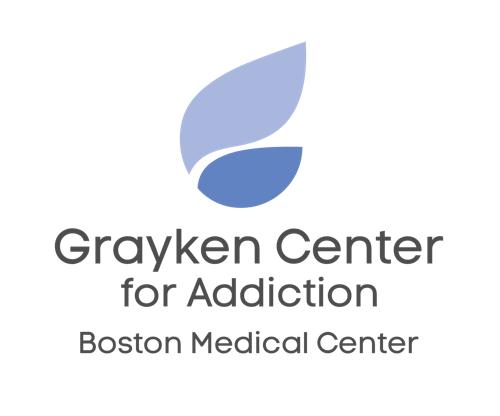Core principles
We at the Grayken Center of Addiction believe in:
- Equitable access to evidence-based treatment
- Treatment, not incarceration
- Harm reduction and how it can help everyone
- Supporting families to cope with substance use disorders
- Empowering people and families with lived experiences
How you can get involved
Policymakers & Legislative Staff Members
If you are a policymaker or government staff member and would like to consult with Grayken's addiction experts, email Boston Medical Center's Government Advocacy team members David Opp (david.opp@bmc.org) and Andrea Pessolano (andrea.pessolano@bmc.org).
BMC Faculty & Staff Members
If you work at Boston Medical Center and would like to join Grayken's policy efforts, email the Grayken Center for Addiction (grayken.center@bmc.org), and include Government Advocacy team members David Opp (david.opp@bmc.org) and Andrea Pessolano (andrea.pessolano@bmc.org).
Patients & Community Members
If you are a patient or local community member and would like to get involved in advocacy, email the Grayken Center for Addiction (grayken.center@bmc.org).
Take action
The issues below — including increasing access to evidence-based treatments and empowering people with substance use disorder and their loved ones — are vital to achieving our mission. We are sharing specific ways that community members, BMC staff, patients, policymakers, and other advocates can work to effect change in these areas.
About the issue:
Methadone is a highly effective, evidence-based treatment for opioid use disorder, but patients can only get it at dedicated methadone clinics and opioid treatment programs. Expanding methadone access will “loosen the liquid handcuffs” that currently bind patients on methadone.
How to take action:
Urge your Member of Congress to support the Modernizing Opioid Treatment Access Act (M-OTAA) and allow methadone to be dispensed in retail pharmacies.
About the issue:
While the effectiveness of involuntary civil commitments to addiction treatment (Section 35) is questionable, one thing is not: People who are held under Section 35 should not be held in a prison or jail.
How to take action:
Urge your state legislator to support legislation that would remove people held under Section 35 from carceral settings and into DPH-operated treatment settings.
About the issue:
Overdose prevention centers are evidence-based harm reduction facilities where people who use drugs can safely consume pre-obtained substances under the supervision of trained healthcare workers, providing access to harm reduction services, linking people to treatment, and saving lives by reversing overdoses.
How to take action:
Check out the Massachusetts for Overdose Prevention Centers (MA4OPC) campaign to get involved.
About the issue:
Healthcare providers in MA are required to file a 51A report of abuse or neglect if a newborn is exposed to drugs prenatally — even if those drugs are prescribed medications for opioid use disorder (MOUD). Being in treatment should not put families at risk.
How to take action:
Urge your state legislator to support legislation that would stop mandatory child abuse reporting for newborns exposed to MOUD
About the issue:
People most impacted by SUD often don’t have a seat at the table. Many organizations are fighting for change and need your voice to make it happen.
How to take action:
Advocate for recovery-informed policy changes with the Massachusetts Organization for Addiction Recovery (MOAR) as a family, friend, or person with lived experience or engage in activism with other parents who have lost a child to SUD through Team Sharing. Share your story through a letter to the editor or by advocating with policymakers.
See our experts fight for change
Related press
June 22, 2023 (Boston Globe)
More than 2,300 people in Mass. Died of an overdose in 2022, the highest number ever
June 14, 2023 (Boston Globe)
Six year’s sober, she was still reported for child abuse for taking addiction medication. Is it time to change the rules?
March 22, 2023 (Provincetown Independent)
With Help Elusive, Two Men Live Crisis to Crisis
April 20, 2022 (WBUR)
Advocates call for end to men being sent to correctional facilities for substance abuse treatment
September 2, 2021 (Boston Globe)
It’s never been more urgent to give safe injection sites a try

 en
en 

 Français
Français Deutsch
Deutsch Italiano
Italiano Español
Español Tiếng Việt
Tiếng Việt Kreyol ayisyen
Kreyol ayisyen